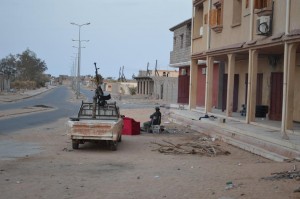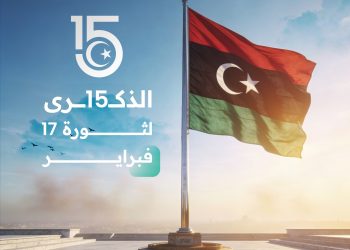By Alessandra Bocchi.

Tunis, 23 January 2017:
Getting international aid to needy areas of Libya is a challenge. Two ambulances and a garbage truck given to Obari by the United Nations Development Agency were actually handed over in Tripoli from where they are being taken down to the south.
The three vehicles are part of the UNDP’s effort to help conflict-torn Obari get back on its feet. The $200,000 aid package from the Stabilisation Facility for Libya, also includes prefabricated buildings for schools and the town’ looted and damaged hospital which has nevertheless continued to operate largely thanks to volunteers.
UNDP’s Libya director Noura Hamladji told the Libya Herald that the Obari package was
just part of the UN’s $30 million stabilisation fund, financed by 15 countries, which is supposed to pay for quick repairs to critical infrastructure.
Obari is the first of three locations signed off for assistance by the board that administers the fund which includes representatives of the Presidency Council as well as donor countries. The others are Benghazi and Kikla in the north-west.
But Hamladji admits there is only so much UNDP can do. “SFL is one project with a limited budget. It aims to support locations across all Libya’s regions. However, it can only work in a modest number of locations if it is to have any impact,” she explained.
The ambulances and garbage truck were handed over in Tripoli to Obari’s mayor mayor Taher Mohammed, its hospital director Mansour Jundi and the head of the tribal committee Ahmed Sattouk.
Haladji said the UNDP has also delivered aid outside of the SFL programme, installing solar panels in hospitals in Benghazi, Sebha and Tripoli. It has also funded projects on conflict resolution, election management and the promotion of women’s role in society. She said that the UN agency has a range of programmes across Libya to support democracy, the rule of law and economic recovery, as well as advising on environmental policy and supporting local government in delivering services.
Obari was chosen in part for what Hamladji described as the “iconic” agreement reached in 2015 when a ceasefire was brokered in Qatar between rival Tuareg and Tebu tribesmen after over a year of heavy fighting. Obari was particularly badly hit with some 80 percent of its population fleeing.






